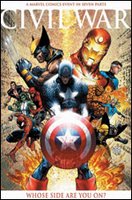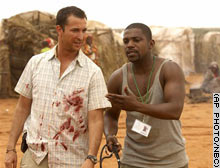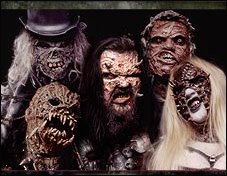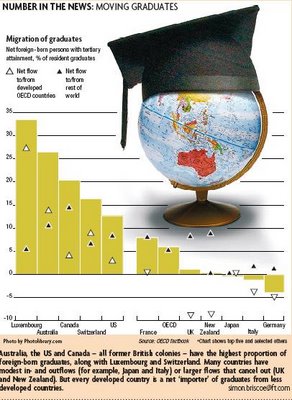On Memorial Day, president Bush said : "We have made clear that the war on terror is an ideological struggle between tyranny and freedom," Bush said. "Our strategy to protect America is based on a clear premise: the security of our nation depends on the advance of liberty in other nations.”
And on Sunday, Senator Bill Frist said that the troops in Iraq are fighting for “our freedom and liberty”.
The expression “freedom and liberty” although quite common sounds a bit redundant, doesn't it? Is there actually a difference between the two words?
Most European languages only have one word - the Romance languages (French, Italian, Spanish, etc.) generally have a word derived from the Latin libertas, whereas the Germanic languages (German, Dutch, Danish, Swedish, etc.) generally have a word derived from the Old Teutonic frijo. (see here). Even though there are historical reasons for the two words (Thanks to William), why has English taken the trouble to retain the pair of Anglo-Saxon and Latin words?
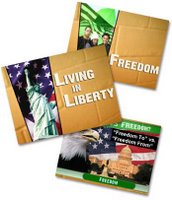 In fact, the use of one word over the other may also be symptomatic of how we see our values and this vison evolves.
In fact, the use of one word over the other may also be symptomatic of how we see our values and this vison evolves.
The U.S. Declaration of Independence, for instance, speaks of "life, liberty and the pursuit of happiness." and it doesn't mention freedom at all. It was "liberty" that Patrick Henry declared himself willing to die for, and liberty that the ringing bell in Philadelphia proclaimed on July 8, 1776. (see here).
The Pledge of Allegiance also talks of “Liberty and Justice for all” (first written in 1892). It seems that the word “liberty” is associated with a fundamental American value and a political system. That may be the legacy of the conception of "English liberty”. (as opposed to Continental Europe and its authoritarian monarchies). It may also by why the French national motto is usually translated as "Liberty, equality, fraternity," and not “freedom”.
However, the word “freedom” gained popularity in the early XXth century with for instance Roosevelt's Four Freedoms — of speech, of religion, from want and from fear, thus adding the economic and social justice that permitted people to pursuit happiness. In the 50s and 60s, it is the word “freedom” which was mostly used during the Civil Rights Movement (Think of the "Freedom Rides"). Rev. Dr. Martin Luther King Jr. used "freedom" 19 times in his "I Have a Dream" speech, and liberty only twice. So it seems that “freedom” became associated with an "absence of constraints and with individual rights". In the 70s and 80s, the word “freedom” shifted to a more economic meaning – think of Reaganomics and "economic freedom" (i.e. deregulation, tax cuts and a weakening of unions). Today, the word freedom is often confused with “free market” whereas the word “liberal” has become a derogatory term for the radical left.
So here are some possible definitions (here):
- “Freedom” as an exemption from control by some other person, or from arbitrary restriction of specific defined rights like Worship, or Speech
- “Liberty” as the sum of the rights possessed in common by the people of a community/state/nation as they apply to its government, and/or the expectation that a nation's people have of exemption from control by a foreign power.
When “liberty” used to be the most patriotic word (during World War I sauerkraut were renamed "liberty cabbage" and dachshunds, "liberty dogs."), today, it seems to be freedom (think of the attempt by American “patriots” to rename French fries “freedom fries” but also of “Operation Iraqi Freedom” followed by “Operation Enduring Freedom” in Afghanistan). Interestingly, freedom often connotes oppressive influences (freedom from something; freedom to do something), while liberty often implies deliverance or release.
However, I think most English-speaking people understand both “liberty” and freedom” as synonyms. The use of the two words together only serves to reinforce the concept. While "Freedom" is strong,"Liberty and freedom" is even more powerful and becomes worth fighting for. Besides, the combination of the two may just sound better.
NOTE: whereas English has two words for “liberté”, the adjective “free” (libre) (as in "free speech") does not distinguish from from free (gratis) (as in "free beer").



